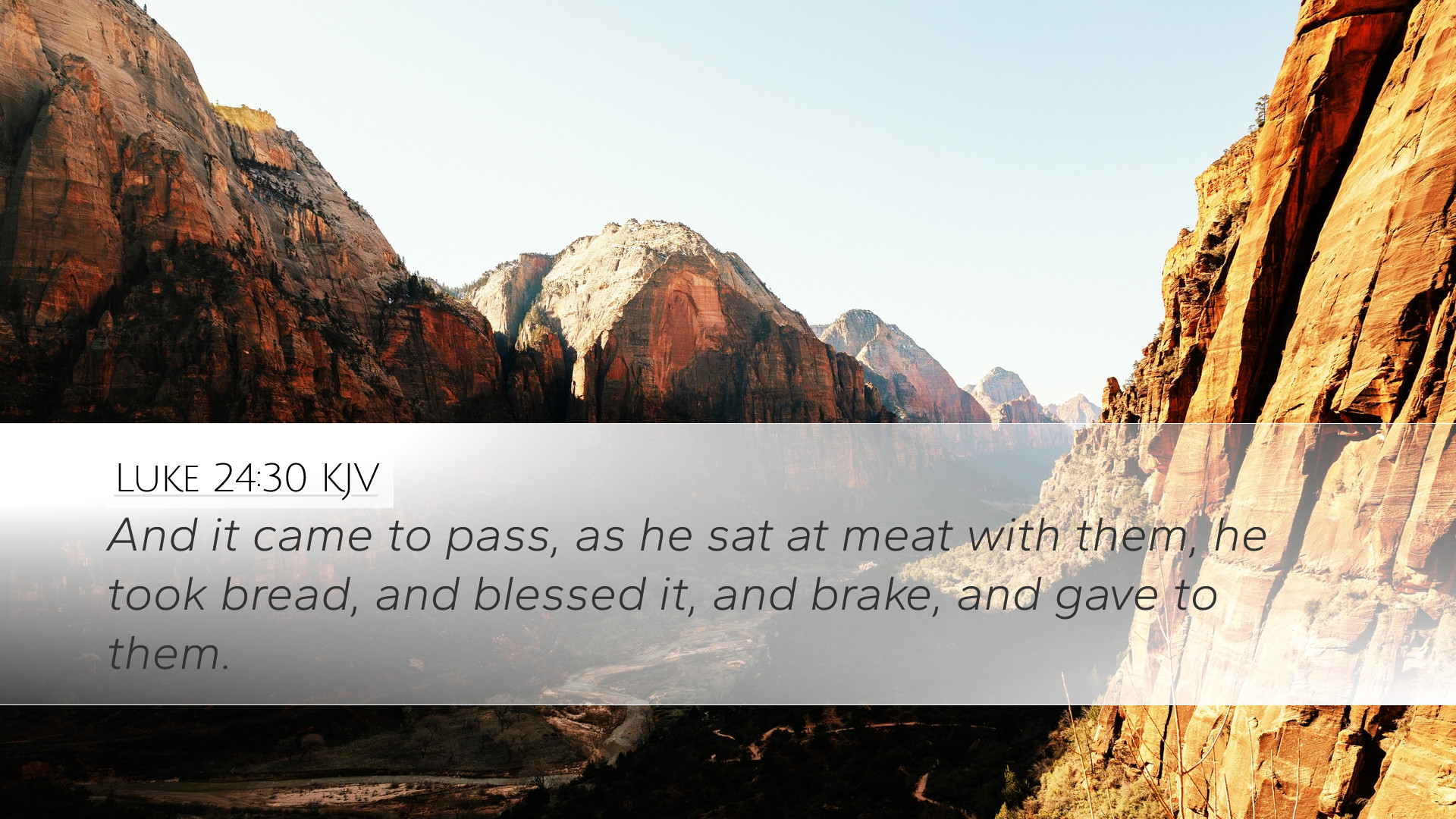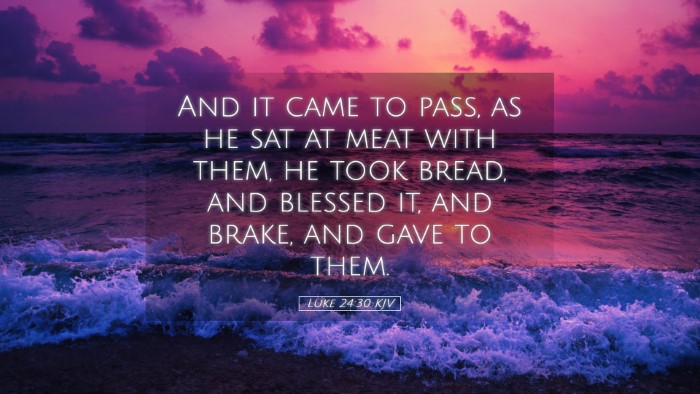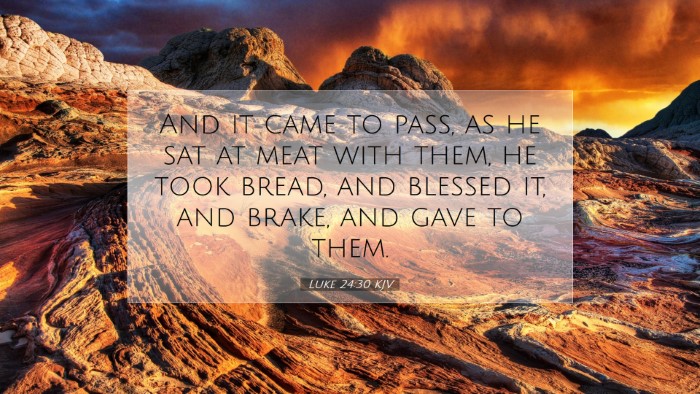Commentary on Luke 24:30
Luke 24:30 states, "And it came to pass, as he sat at meat with them, he took bread, and blessed it, and brake, and gave to them." This verse comes at a pivotal moment in the post-resurrection account of Jesus, where the disciples, having encountered Him on the road to Emmaus, are invited to share in a meal. Below, we delve into insights from well-known public domain commentaries, exploring the significance of this moment from various theological perspectives.
Contextual Overview
This verse occurs in the narrative following Christ’s resurrection. The two disciples, Cleopas and another unnamed disciple, are traveling from Jerusalem to Emmaus, discussing the recent events surrounding Jesus' death and resurrection. Their encounter with the risen Lord profoundly changes their understanding and ignites a sense of purpose.
Theological Significance
Luke 24:30 serves as a crucial point for understanding the nature of fellowship, revelation, and the Eucharistic symbolism that permeates the life of the New Testament church.
1. The Act of Breaking Bread
Matthew Henry notes that the act of breaking bread is significant in both a literal and spiritual sense. In Jesus taking the bread, blessing it, and breaking it, we see a foreshadowing of the Last Supper and a continuation of the covenant established therein. This moment serves as a reminder that Jesus is both the provider and the sacrificed lamb, fulfilling the role of sustainer for His followers.
2. Revelation Through Fellowship
Adam Clarke emphasizes that it is in the breaking of bread that Jesus makes Himself known to the disciples. Until that moment, their eyes were “holden,” which prevented them from recognizing Him. The act of sharing a meal draws emphasis on the personal and communal nature of discipleship. Clarke argues that this intimate act of communion opens their spiritual eyes, leading to a moment of revelation.
3. Eucharistic Implications
Similarly, Albert Barnes connects this act to the practice of the Eucharist or Holy Communion in the Christian tradition. The breaking of bread is a central theme that carries deep theological implications. The Lord’s Supper serves as a memorial and a means of grace, a profound mystery encapsulated in the simple act of eating and drinking, embodying the essence of Christ's sacrifice and His sustaining presence among believers.
Application to Discipleship
The implications of Luke 24:30 extend beyond the immediate context of the two disciples. For pastors and theologians, this passage underscores the importance of hospitality in ministry. By sharing a meal, Jesus engages with the disciples in their context and uses an everyday occurrence to unveil profound truths.
1. The Importance of Community
Pastoral applications of this verse highlight the role of community in spiritual formation. As believers gather to share meals, they foster environments where Christ can reveal Himself. This passage invites reflection on how church practices can create spaces for divine encounters.
2. Spiritual Awakening
Clarke asserts that spiritual blindness can hinder one’s ability to see Jesus in both personal and communal settings. The breaking of bread serves as a transformative act capable of awakening spiritual awareness. Pastors are encouraged to invite congregants into practices that promote spiritual renewal and recognition of Christ’s presence.
Historical Context
Understanding the historical context enriches the interpretation of this verse. Sharing meals was a vital cultural component of 1st-century Israelite life. In Jewish tradition, meals signified fellowship, acceptance, and covenant relationship. Jesus’ act of breaking bread would resonate deeply with those familiar with the significance of meals as markers of divine presence.
- Jesus’ Authority: The context of the meal underscores Jesus’ authority, even in His resurrected state, as He takes on the role of host.
- Fulfillment of Prophecy: This act links back to prophetic traditions, echoing how meals had been a form of divine communication and presence throughout Biblical history.
- Encouragement to Disciples: This moment served as encouragement for the disciples, reinforcing their faith in the wake of despair following Jesus' crucifixion.
Conclusion
Luke 24:30 captures a transformative moment in the early church that holds relevant insights for today’s church. The intersection of breaking bread, revelation, and fellowship serves as a profound model for Christian community and worship. By reflecting on the insights from Matthew Henry, Albert Barnes, and Adam Clarke, believers are reminded of the power of shared experiences in recognizing Christ's presence among them, encouraging deeper communion both with God and one another.


